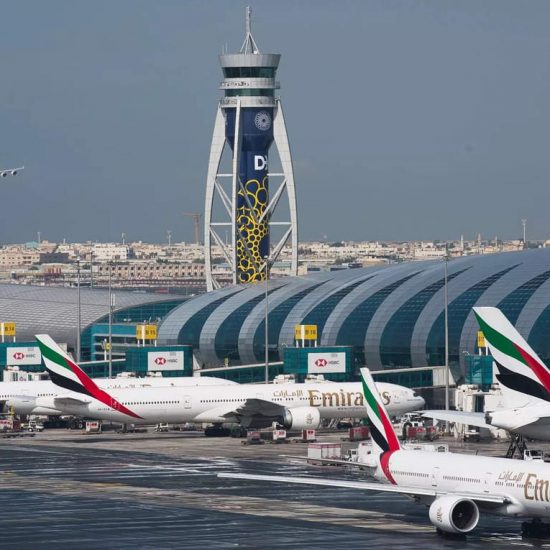 Emirates is breaking out of Dubai. In what will be a curious experiment for one of the world’s fastest-growing and most respected airlines, Emirates will begin flying daily from New York’s JFK International Airport to Milan starting Oct. 1. It will be one of the very few routes in the company’s vast network that doesn’t touch its Dubai hub.
Emirates is breaking out of Dubai. In what will be a curious experiment for one of the world’s fastest-growing and most respected airlines, Emirates will begin flying daily from New York’s JFK International Airport to Milan starting Oct. 1. It will be one of the very few routes in the company’s vast network that doesn’t touch its Dubai hub.
The JFK-Milan route is currently served with nonstop flights by Alitalia, Delta (DAL), and American, while United (UAL) flies directly from nearby Newark. Into that mix comes Emirates, which is touting the only first-class service on the route—its rivals offer only business class as the top level—as well as connections to the rest of Italy through a soon-to-be announced partnership with EasyJet, which has established a small domestic operation at Milan’s Malpensa Airport. Emirates already has three daily flights to Dubai from Milan and flies to 134 cities in 76 countries.
Why Milan? Thierry Antinori, Emirates’ chief commercial officer, declined to specify just what made the Italian city an attractive target. “We see a good DNA in the cities of Milan, New York, and Emirates,” he said in an interview, “and we have a very good product to offer.” Both cities are banking and fashion centers, of course, and pitting Emirates’s high-end cabins against the U.S. airlines and Alitalia may have offered a more significant contrast than vying against Air France, British Airways, or Lufthansa on other European routes.
Antinori insists that the Milan flight is a one-off for now, with Emirates’ future U.S. expansion focused exclusively on new cities to connect with Dubai. The airline now flies to seven U.S. cities and sees room to expand to 15 in the future. A similar experiment with a non-Dubai route, from New York to Hamburg, ended in 2008 in part because Emirates did not have the traffic flows to support the flight. One difference now is an expanded codeshare agreement with JetBlue Airways, the largest domestic operator at JFK. The agreement inked earlier this year allows each airline to sell seats on the other’s flights and transfer luggage. The airlines also have a frequent-flier reciprocity deal.
Emirates, the world’s largest operator of wide-body, long-haul planes, has made flights to and from Dubai the cornerstone of its explosive growth. That expansion stems partly from its location in a region where international air service has been severely limited due to conflict and political paralysis. Consider the state of airlines in Iraq, Iran, India, Afghanistan, Pakistan, India, Saudi Arabia, and Yemen—virtually nonexistent or financially troubled, for the most part. A major portion of Emirates’ U.S. business, in fact, is travel to India.
For years, large international rivals such as Lufthansa, British Airways, and Delta have strongly criticized Emirates as a state-supported carrier that is siphoning international connecting traffic from Europe to the United Arab Emirates via unfair subsidies. Emirates says it doesn’t receive government support and that it operates financially the same as any other airline. Elbowing into the lucrative trans-Atlantic business market is likely to aggravate the sore feelings.-Bloomberg








